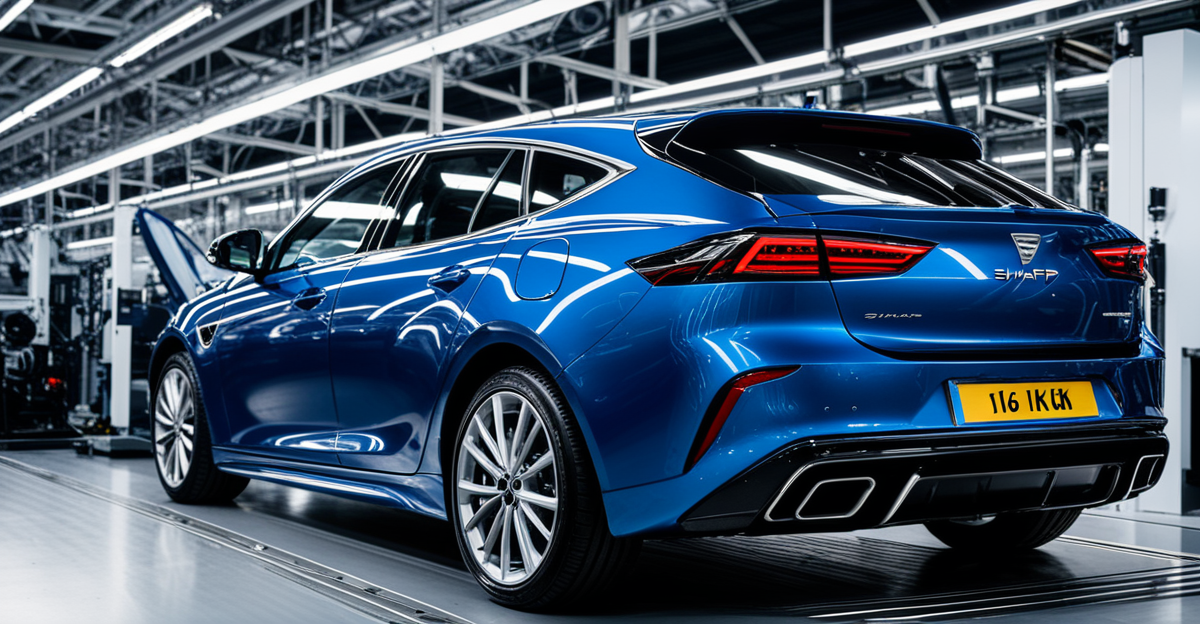Latest Developments in UK Automotive Manufacturing
The UK automotive industry has shown resilience amid fluctuating global conditions. Latest UK car manufacturing statistics reveal an upward trend in production volumes, with notable recovery in export figures post-pandemic. Despite supply chain disruptions, manufacturers have adapted by optimizing operations and diversifying sourcing strategies.
Consumer preferences in the UK automotive market overview are shifting rapidly. There’s increased demand for eco-friendly vehicles, influencing production priorities. Market data indicates a surge in electric and hybrid vehicle manufacturing, reflecting broader automotive industry trends in the UK towards sustainability and innovation.
Also to discover : How Can the UK’s Automotive Industry Overcome Current Challenges?
Post-pandemic recovery has been a key driver behind operational changes. Many UK plants have employed flexible work practices and invested in automation to maintain efficiency. These adjustments have directly contributed to the positive rebound in the sector’s output. The synergy between evolving market demands and manufacturing agility positions the UK automotive industry well for continued growth.
Technological Innovations and Advancements
The rise of electric vehicles UK marks a pivotal shift in the vehicle technology trends shaping the automotive sector. Production volumes of EVs continue to climb rapidly, driven by consumer demand and supportive policies. This surge is evident in manufacturing facilities adopting advanced battery technologies and expanding charging infrastructure compatibility.
This might interest you : How Can the UK Automotive Industry Address Its Environmental Impact?
Automotive automation UK has progressed significantly, with manufacturers increasingly integrating robotics and AI-powered systems on assembly lines. This not only boosts operational efficiency but also reduces errors and enhances quality control. Smart manufacturing solutions enable real-time data analytics, leading to proactive maintenance and optimized production workflows.
Connected car technologies represent another vital advancement. Modern vehicles now feature sophisticated sensors, IoT connectivity, and software updates that improve safety, navigation, and user experience. These trends align with broader industry shifts towards digitalization and autonomous driving capabilities.
Together, these innovations underscore the competitive edge of UK automotive manufacturing, leveraging technology to meet evolving market demands and sustainability goals. The continued focus on electric vehicle growth, automation, and connectivity will likely define the sector’s future trajectory.
Government Policies and Their Impact
Government policies significantly shape UK automotive manufacturing dynamics. The UK automotive policy landscape now emphasizes sustainability with strict emissions regulations aimed at reducing environmental impact. These mandates are compelling manufacturers to innovate, particularly by accelerating the shift towards electric and hybrid vehicles aligned with broader climate goals.
Brexit has introduced complexities affecting the sector. The Brexit impact on automotive includes altered trade agreements, leading to new tariffs and customs checks that challenge seamless cross-border supply chains. Manufacturers must navigate these changes carefully to maintain competitiveness. Some are responding by enhancing local sourcing to mitigate risks associated with import delays and increased costs.
Additionally, government incentives and funding programs support innovation and electrification efforts. Subsidies for research & development and grants for electric vehicle infrastructure encourage industry investment in cutting-edge technologies. Such support helps UK car manufacturers remain globally competitive while aligning with automotive sustainability mandates set forth by policymakers.
Overall, these evolving policies encourage adaptation through sustainable practices and supply chain resilience, directly influencing manufacturing strategies and market positioning within the UK automotive industry.
Strategic Initiatives by Key Industry Players
Leading UK car manufacturers have made substantial automotive investment UK in response to evolving market pressures and technological advances. These firms are focusing on upgrading production lines to accommodate increased manufacturing of electric models, evidencing a direct link to broader vehicle technology trends.
Collaborations and joint ventures have become pivotal strategic moves. By pooling resources and expertise, manufacturers are accelerating innovation and market expansion. For example, partnerships targeting battery technology and autonomous systems highlight the industry’s commitment to future-proofing.
Expansion into emerging automotive segments such as electric commercial vehicles and connected mobility services is gaining traction. This diversification aligns with shifting consumer demands and government sustainability mandates.
In summary, UK car manufacturers are leveraging strategic investments and alliances to strengthen their competitive position. These initiatives foster agility and innovation, essential for adapting to fast-changing industry dynamics and cementing the UK’s role in the global automotive market.
Supply Chain Trends and Emerging Challenges
The UK automotive supply chain continues to face significant pressure from ongoing global supply chain disruption. Persistent parts shortages—especially in semiconductors and raw materials—have forced manufacturers to revise production schedules and prioritize critical components. This disruption stems from complex international logistics bottlenecks and fluctuating demand patterns post-pandemic.
To lessen exposure to these vulnerabilities, many UK car manufacturers are proactively reshoring automotive components or diversifying supplier networks closer to home. Local sourcing reduces lead times and customs complications heightened after Brexit. However, reshoring introduces challenges like higher costs and the need to scale domestic manufacturing capabilities.
Labour shortages in the automotive sector also complicate supply chain management. Workforce transformation through upskilling and automation adoption aims to mitigate these issues by enhancing operational flexibility and productivity. Automation investments help compensate for human resource gaps and improve supply chain resilience.
In sum, adapting to UK automotive supply chain disruptions requires a balanced approach of strategic sourcing, technology deployment, and workforce development. These trends will crucially shape the efficiency and competitiveness of UK automotive manufacturing going forward.
Opportunities and the Future Outlook
Emerging green automotive manufacturing techniques in the UK signal promising pathways for sustainable growth. Companies increasingly adopt eco-friendly materials and energy-efficient processes, aligning with rising environmental expectations. The future of UK automotive lies heavily in embracing these innovations, which reduce carbon footprints while maintaining production efficiency.
Industry forecasts highlight a surge in demand for zero-emission vehicles, with the automotive market forecast predicting continued expansion in electric and hybrid segments. This momentum opens new export opportunities, especially in regions emphasizing clean transport solutions.
Experts agree that leveraging technological advances alongside evolving consumer preferences positions the UK automotive sector for resilience and competitive advantage. To capitalize on these prospects, manufacturers must continue investing in research, infrastructure, and workforce skills tailored to green technologies.
Ultimately, the future of UK automotive is shaped by a balance between sustainable manufacturing practices and market responsiveness. Embracing this dual focus will be critical for the industry’s long-term success and contribution to environmental goals.










